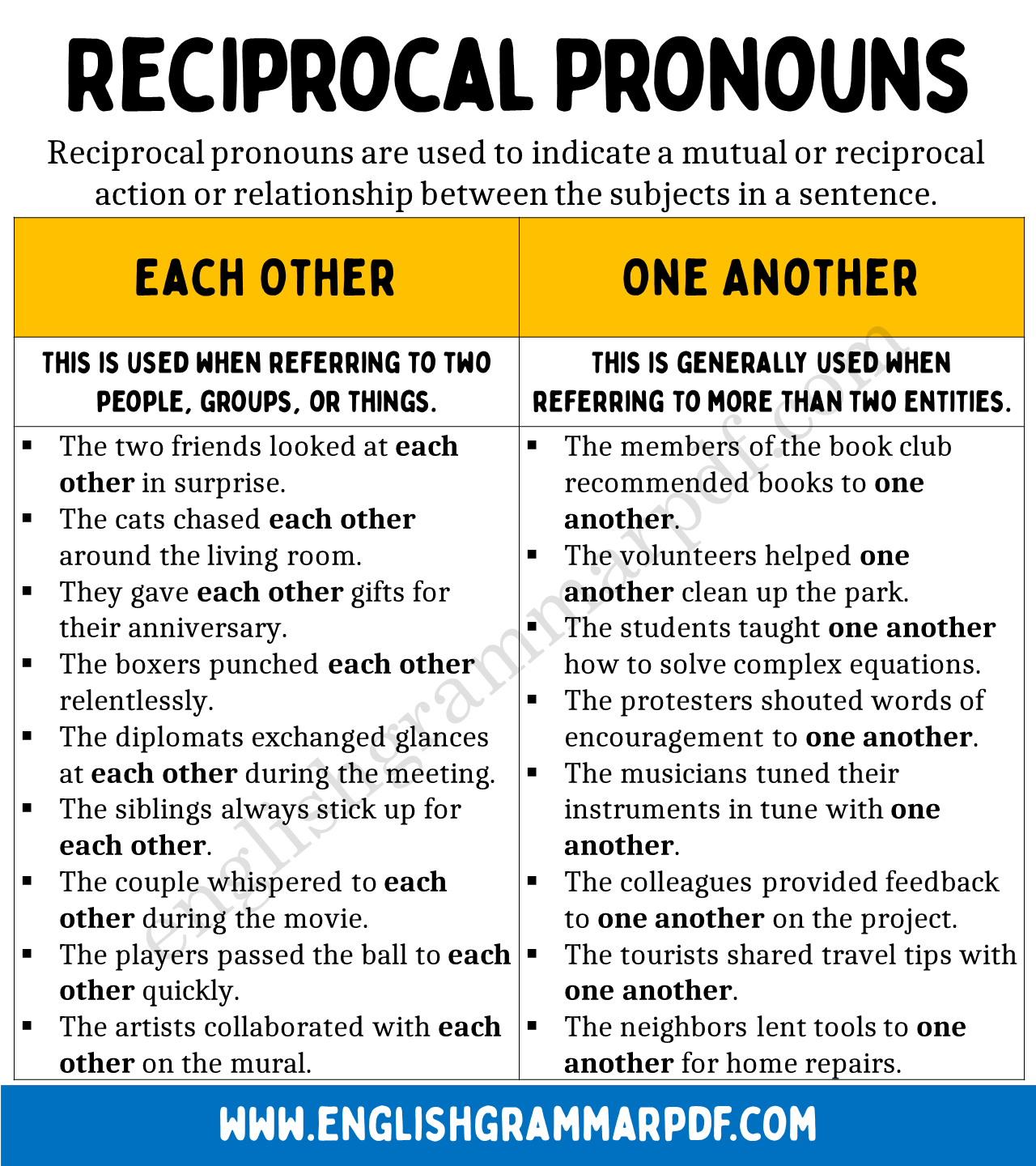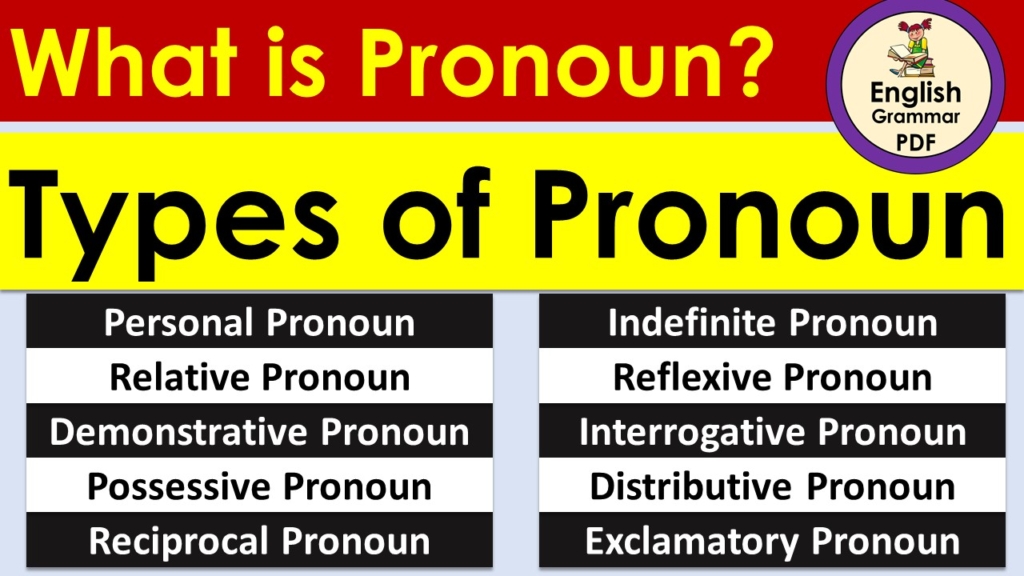In the world of grammar, understanding how we refer to mutual actions or feelings between two or more people is crucial. Reciprocal pronouns simplify this interaction. Let’s delve into what these pronouns are and how to use them effectively in English.
Definition of Reciprocal Pronouns
Reciprocal pronouns are used to indicate a mutual or reciprocal action or relationship between the subjects in a sentence. In English, the two reciprocal pronouns are “each other” and “one another.” These pronouns help avoid repetitiveness and make sentences simpler and more elegant.
Difference Between “Each Other” and “One Another”
The use of “each other” and “one another” can sometimes be confusing, but traditionally, there has been a subtle difference in their usage:
- Each Other: This is used when referring to two people, groups, or things. It emphasizes a reciprocal relationship between two distinct entities.
- One Another: This is generally used when referring to more than two entities. It implies a relationship involving several individuals or groups.
However, in modern usage, these rules are not strictly followed, and both phrases are often used interchangeably. The key is that both express mutual or reciprocal actions.
10 Example Sentences Using “Each Other”
- The two friends looked at each other in surprise.
- The cats chased each other around the living room.
- They gave each other gifts for their anniversary.
- The boxers punched each other relentlessly.
- The diplomats exchanged glances at each other during the meeting.
- The siblings always stick up for each other.
- The couple whispered to each other during the movie.
- The players passed the ball to each other quickly.
- The artists collaborated with each other on the mural.
- The toddlers smiled at each other and played.
10 Example Sentences Using “One Another”
- The members of the book club recommended books to one another.
- The volunteers helped one another clean up the park.
- The students taught one another how to solve complex equations.
- The protesters shouted words of encouragement to one another.
- The musicians tuned their instruments in tune with one another.
- The colleagues provided feedback to one another on the project.
- The tourists shared travel tips with one another.
- The neighbors lent tools to one another for home repairs.
- The scientists shared their research findings with one another.
- The children at the party played games with one another.



